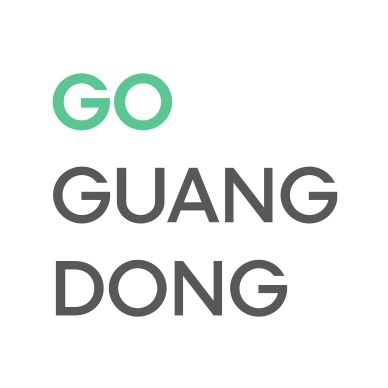GO
Guangdong Route:
Yakou Rice Field→Yakou cafés→Yakou Seafood & Food Street→Yakou Hall
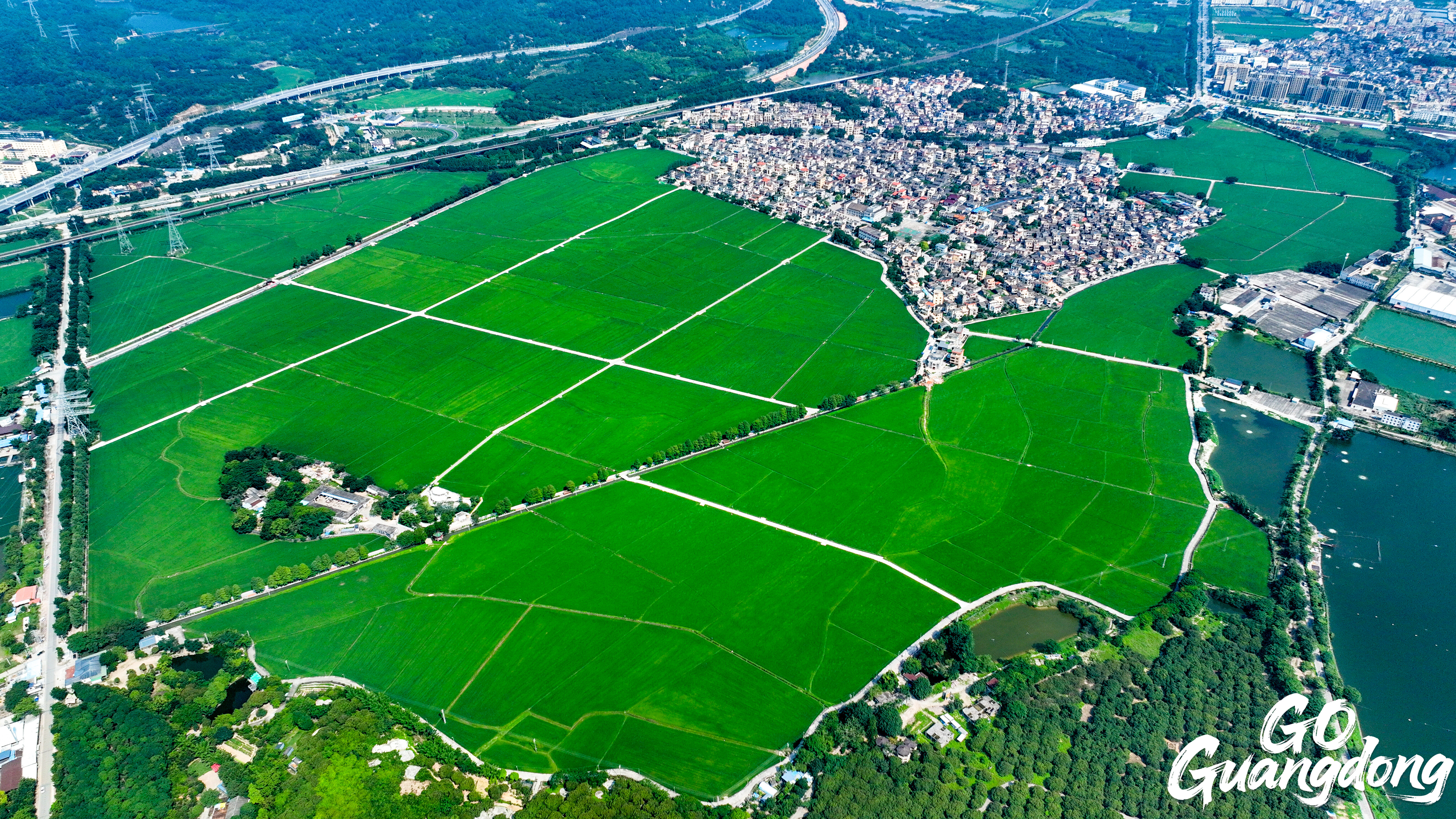
Yakou Village, Zhongshan
Located on the western bank of the Pearl River Estuary, Yakou Village in Nanlang Sub-district, Zhongshan City, faces the Lingdingyang Sea area to the east, with Shenzhen and Hong Kong across the waters. The Shenzhen-Zhongshan Link opened in 2024, making the village just a 25-minute drive (20km) from the Cuiheng East Exit of the Shenzhen-Zhongshan Link and facilitating effortless transportation from megacities such as Shenzhen and Hong Kong.
Yakou boasts vast rice fields and mangrove forest
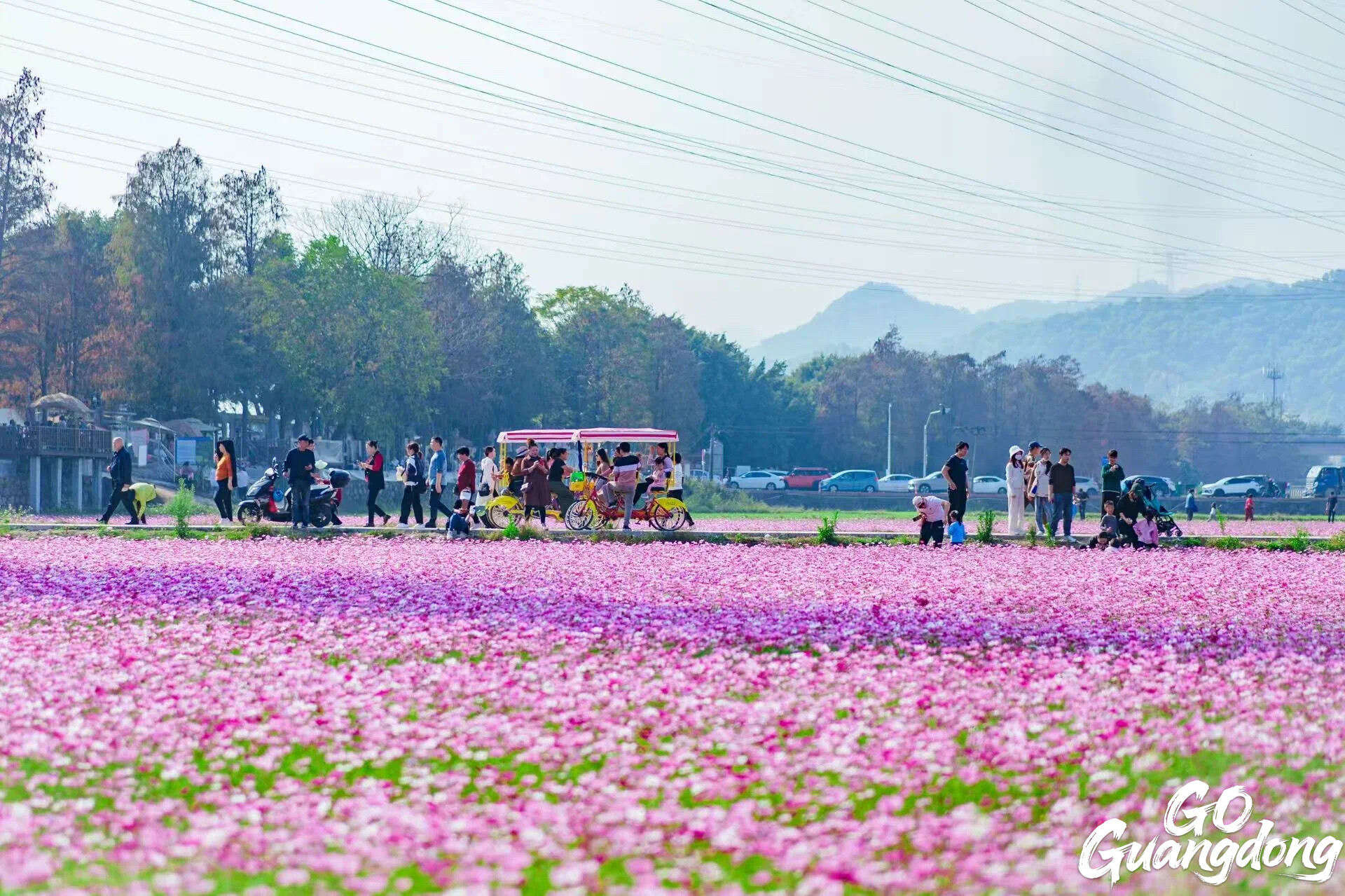
Pedaling amidst idyllic countryside vistas
Yakou Village encompasses about135 hectares of contiguous rice fields, creating a unique natural landscape amidst the bustling mega cities of the Guangdong-Hong Kong-Macao Greater Bay Area (GBA) .
The village leverages its endless rice fields to develop agritourism programs,including paddy field sightseeing and farmhand experiences.These measures allow visitors to immerse themselves in agrarian culture through activities such as rice transplanting and harvesting.
The Yakou rice fields function as nature’s mystery boxes-where each season reveals a fresh spectacle, while every season remains equally photogenic.
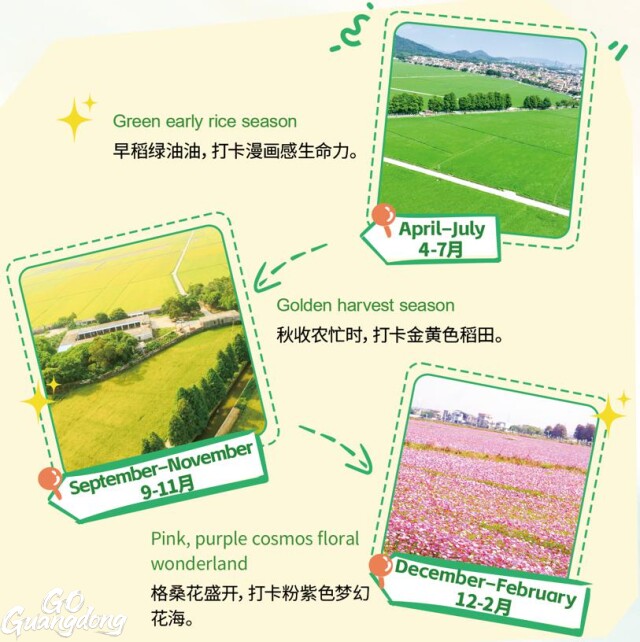
Rice cultivation is the primary industry of Yakou. The village further pioneered a premium brand, namely the selenium-rich rice, and registered the trademark "Yakou Rice". Thanks to the improved quality, Yakou Rice achieved a 700 percent price surge from 5 yuan per kilogram to 40 yuan per kilogram.
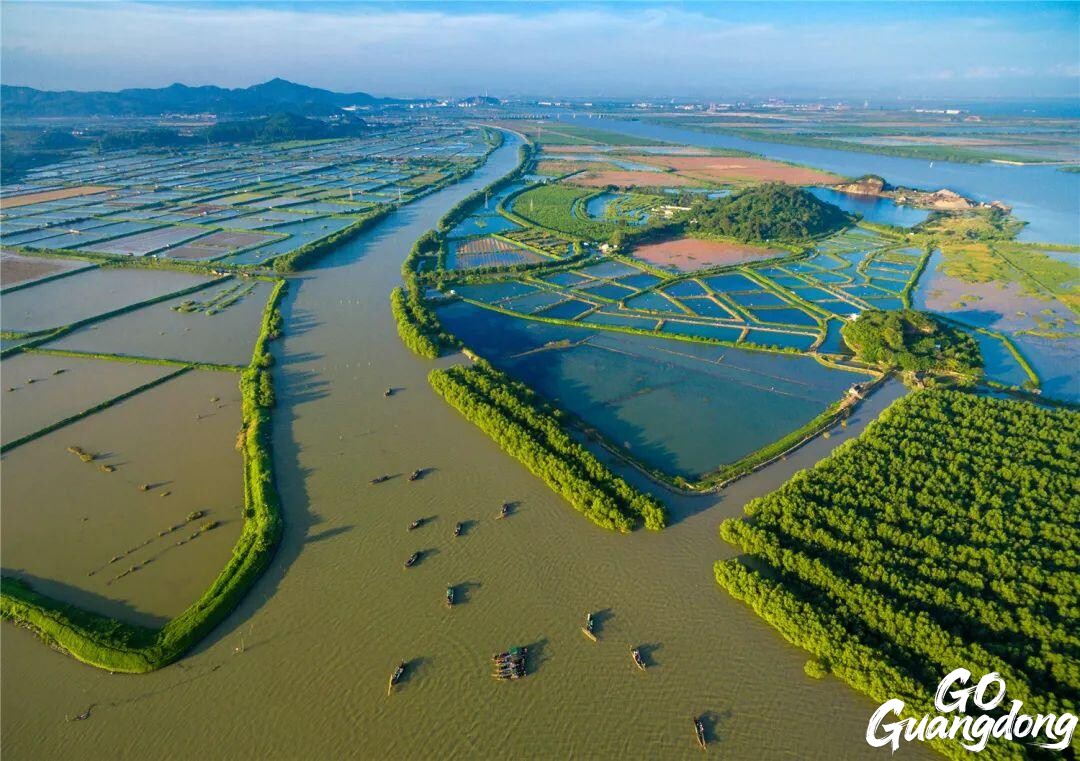
Yakou Mangrove Wetlands
In addition, Yakou encompasses the largest mangrove forest in Zhongshan. The village has invested nearly 200 million yuan in the construction of the Yakou Wetland Park. As a crucial destination along the East Asia–Australasia migratory route, Yakou Wetland welcomes tens of thousands of migratory birds each year. Starting in October, large flocks of egrets, herons, and other rare species arrive to spend the winter.
Yakou cafés and homestays attract tourists from home and abroad
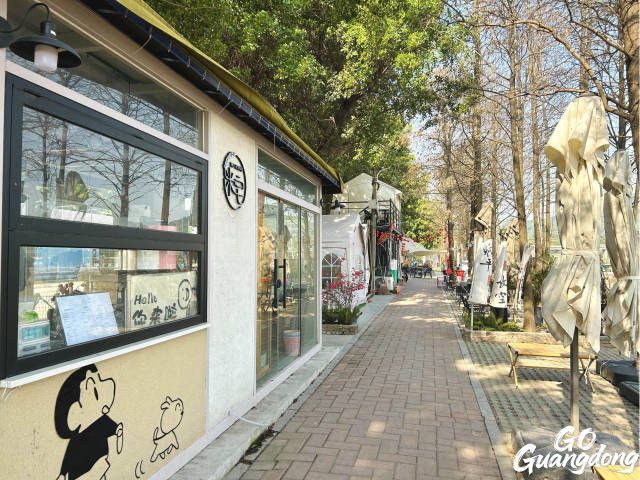
The container shops
Yakou village has revitalized its ecological assets and transformed its rice fields into a vibrant container-themed street. The container shops mainly features local agricultural products, snacks, and handmade crafts. In 2023, eighteen container shops made over 340 thousand yuan.
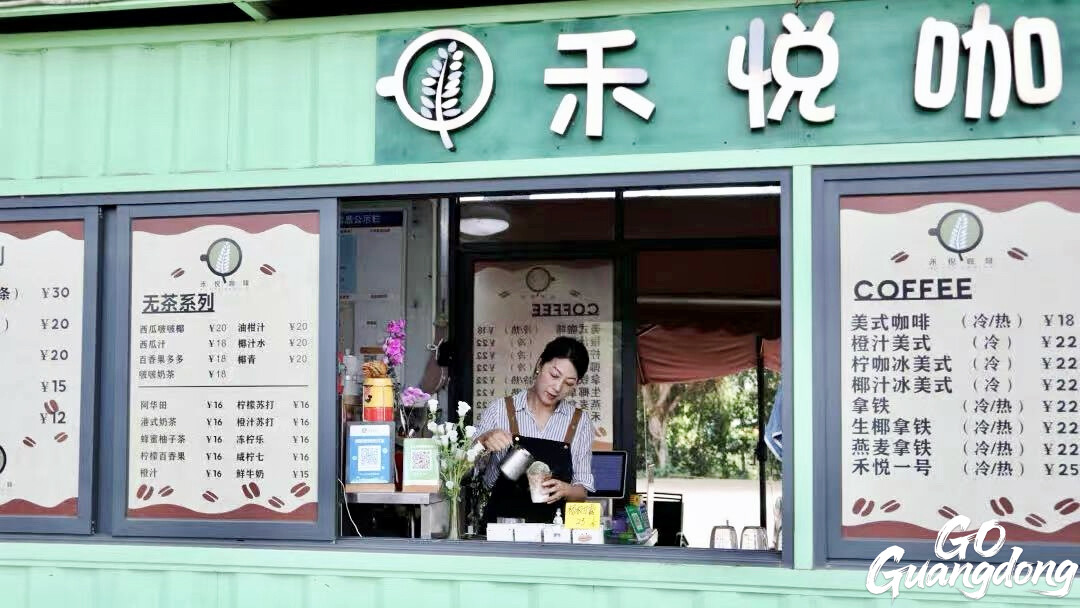
The café owner Ms. Zhuang
Ms. Zhuang, the owner of a café on the container-themed street, shared, "I’m captivated by the rice fields in the village, and I have witnessed their transformation. This street was once overrun with weeds, but it has now evolved into a clean and vibrant tourist attraction. Most visitors discover Yakou through online platforms and are drawn in by the relaxing environment. On holidays, traffic congestion begins as early as morning in the village."
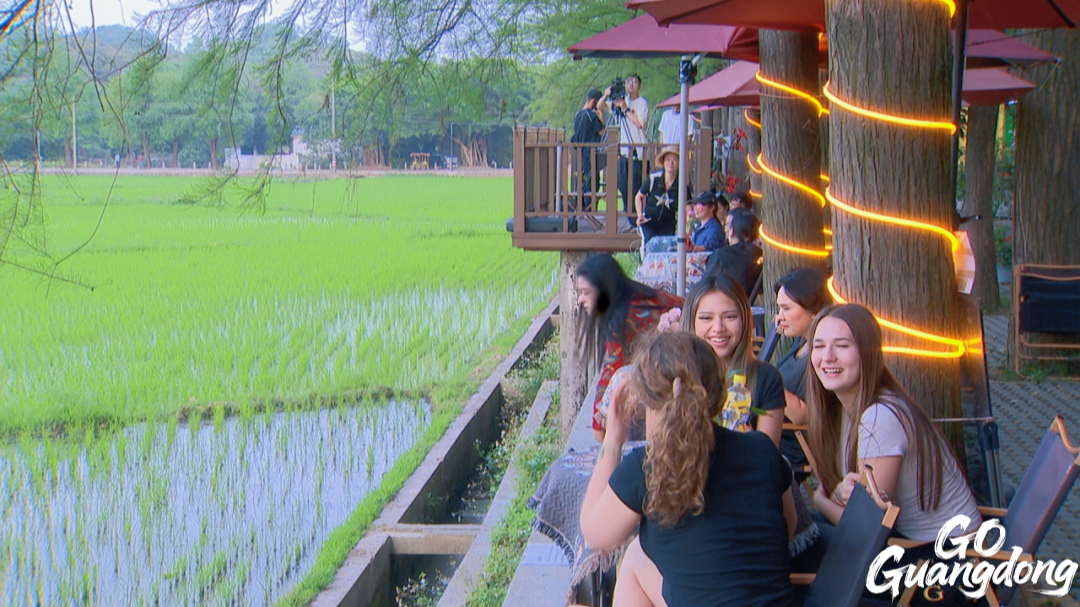
Tourists enjoy the pastoral scenes from the coffee terrace
Thus far, Yakou has more than 30 cafés featuring its own coffee bean brand. To provide tourists with better services, eleven special homestays were built, too. Four won awards as top rural B&Bs. Heshe Bookstore Inn is one. The East Embankment now has a night market. It charges zero rent to help small sellers.
With these strategies, over 70 families returned to start businesses. More than 300 locals launched ventures, generating about1,000 jobs across the village. Popular spots like OLDBOY café opened. InClouds Café is another hit. Their annual revenue is anticipated to exceed20 million yuan in 2024.
6-kilometer food street built to present local flavor
Yakou has transformed its scenic coastline along the Lingdingyang estuary into a 6-kilometer-long gourmet streets, featuring the container-themed street, seafood street, clay pot rice street, and the Dongdi seaside market. Strolling through these food streets, visitors can enjoy classic Cantonese claypot rice and freshly caught seafood.
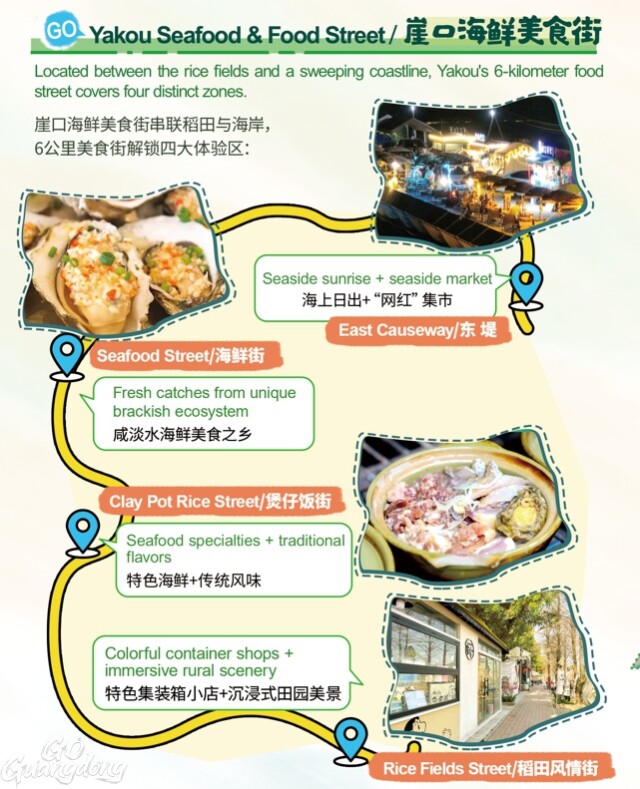
Since the opening of the Shenzhen–Zhongshan Link, a growing number of visitors from Hong Kong, Shenzhen, and other cities on the eastern side of the Pearl River Delta have flocked to Yakou. On weekends, the village's parking lots are packed with cars from out of town, all drawn by its local culinary delights.It has transformed into a tourist hotspot as it attracted 5.84 million visitors in 2024.
Yakou Piaose Parade, a national intangible cultural heritage
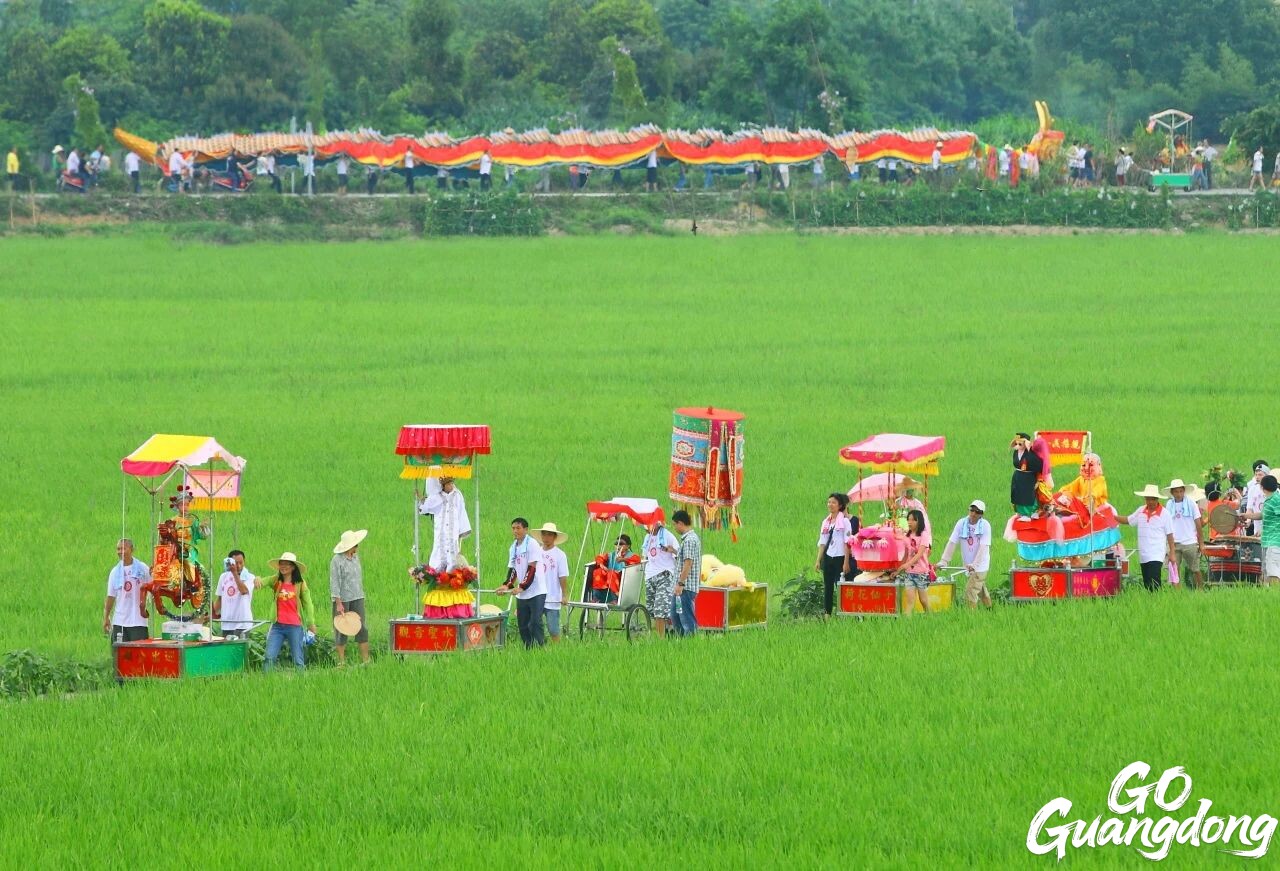
Yakou Piaose Parade
Yakou Piaose Parade, recognized as a China's Intangible Cultural Heritage, is organized every year on the 6th day of the 5th lunar month in the village to pray for national prosperity, agricultural abundance, epidemic prevention, and universal harmony.
Yakou Hall and the village's unique collective economic model
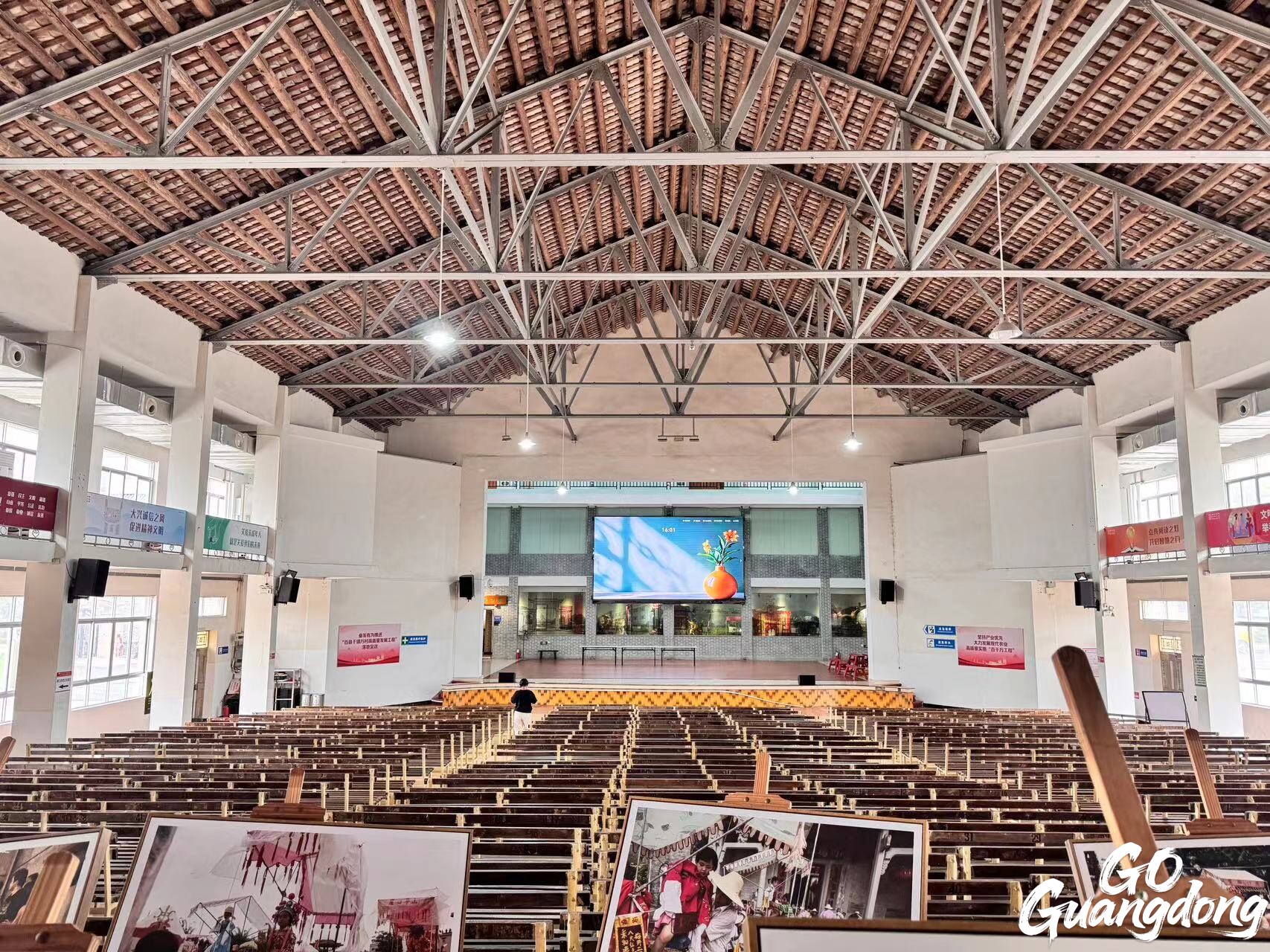
Yakou Hall
Co-funded in the 1970s by the Yakou Commune, overseas Chinese, and Hong Kong, Macao, Taiwan compatriots, this collective landmark opened in 1983 as the village's main venue for cultural activities. Preserving original 1980s aesthetics, the hall stands as a symbol of collective ownership and is a witness to the history of Yakou Village.
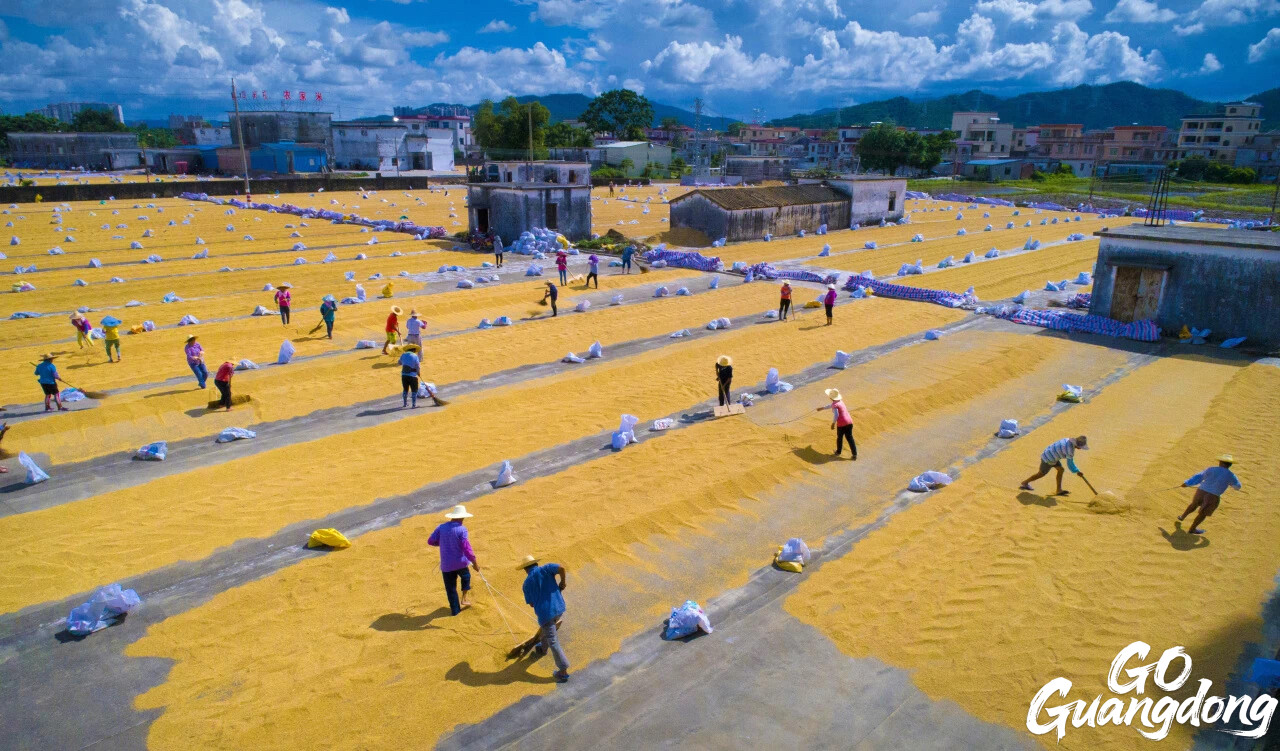
People
working at the Yakou Selenium-Rich Rice Demonstration Base
Yakou Village is the last community in the Pearl River Delta, preserving the People's Commune system, a unique hybrid model combining planned and market economies. Local farmers collectively cultivate rice fields, earning 100–150 work points (labor credits) per day during harvests, with income distributed based on their contributions. Meanwhile, coastal wetlands and fish farms are leased to private businesses through market-driven contracts, generating 16–17 million yuan annually (approx. 2.2–2.3 millionUSD). Villagers freely choose between collective farming and private jobs, blending socialist welfare with market flexibility.
The village channels collective income into welfare programs, such as free rice for residents and subsidies for low-income families, reducing wealth gaps. Its inclusive entrepreneurship policies empower youth to launch tourism ventures such as cafés and guesthouses,turning visitors into jobs and profits. This model demonstrates how community-owned resources (collective economy) can coexist with market practices, offering a replicable blueprint for rural revitalization.
Reported by Tang Huiting, Zhou Hongdou
Edited by Yin Juewen
中山崖口村Yakou Village Brochure.pdf



